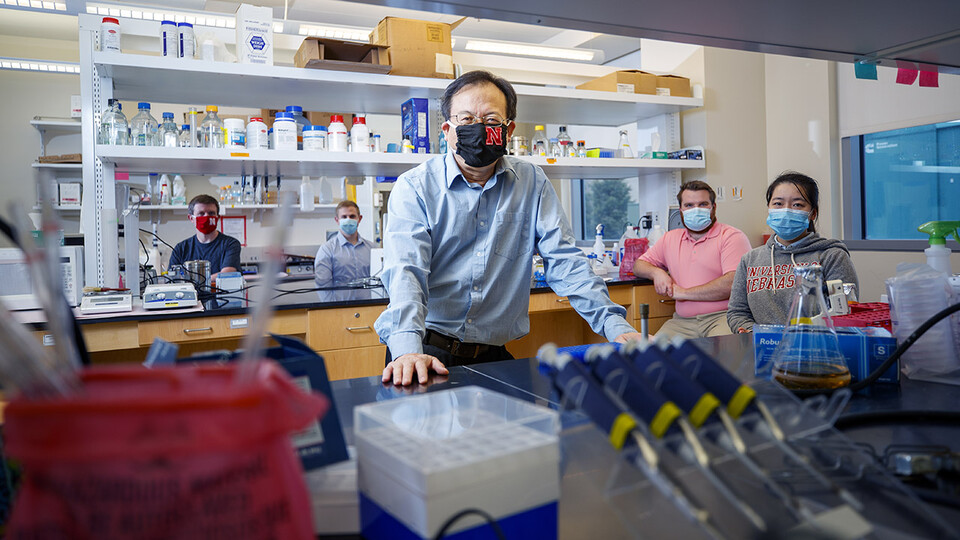
As a global pandemic sweeps across the world, the entire University of Nebraska-Lincoln community has pulled together to continue education for the world’s future leaders, find new ways to pursue impactful research and manage partnerships in a new normal.
Learn about the innovative reach of university programs going virtual around the world and life-impacting research that continues despite the challenges of a pandemic.
Nebraska leads global discussion on leveraging virtual connections in the classroom
In September, Nebraska was one of four institutions to host the Virtual International Seminar along with the University of Nizwa in Oman, Universiti Teknologi Petronas in Malaysia and the Federal University of Rio de Janeiro, Brazil. More than 1,300 people around the world joined the seminar, at which Nebraska presented two sessions on the effect of COVID-19 on U.S. higher education and best practices for virtual exchange classes.
Read More
Nasal spray could mean needle-free COVID-19 vaccine
As the world eagerly awaits the debut of a COVID-19 vaccine, many of us imagine that receiving the immunization will be similar to getting the flu shot via needle. But Nebraska virologist Shi-Hua Xiang envisions a different approach, one with the potential to involve a little less pain and anxiety, enhanced immunity against COVID-19 and a smaller price tag. With support from the Office of Research and Economic Development’s COVID-19 Rapid Response Grant Program, Xiang is in the early stages of developing a bacterial delivery system for a COVID-19 vaccine that would be delivered directly to the respiratory tract as a nasal spray.
Read More
Human trafficking conference goes virtual, expands reach
A shift to a virtual experience expanded the reach of the University of Nebraska–Lincoln’s 12th annual Interdisciplinary Conference on Human Trafficking. The conference, which took place virtually over the month of October, was inspired by the human trafficking work of Sriyani Tidball, a retired assistant professor of practice in the College of Journalism and Mass Communications. The virtual experience allowed conference organizers to expand the number of presenters and tap into a broader range of experiences. The lineup included two movie screenings and 12 talks by 14 human trafficking experts from around the world.
Read More
Yeutter Institute provides opportunity after canceled internships
The COVID-19 pandemic paused many student internships, but the Clayton Yeutter Institute of International Trade and Finance at the University of Nebraska–Lincoln refused to let the pandemic disrupt student learning opportunities. Before the pandemic arose, five Husker student interns were set to work as a team for a leading global food and agriculture company through a partnership arranged by the Yeutter Institute. The pandemic interrupted the project they were to work on, but the institute remained dedicated to providing hands-on learning experiences for the interns.
Read More
Extreme Light Laboratory research advancing despite pandemic
Even though the COVID-19 pandemic has slowed much academic research across the nation, the Extreme Light Laboratory at the University of Nebraska–Lincoln is among facilities that are continuing to press forward. The laboratory, home to the powerful Diocles laser, is one of 10 high-intensity laser facilities in North America that recently formed LaserNetUS, a network that gives researchers from around the world significantly improved access to unique lasers. Last month, the U.S. Department of Energy announced that it would invest an additional $18 million in the network for the next three years, to be used to maintain and upgrade its lasers.
Read More